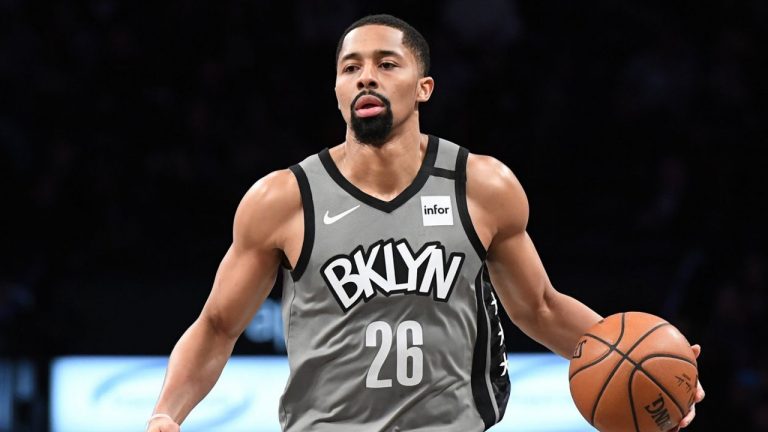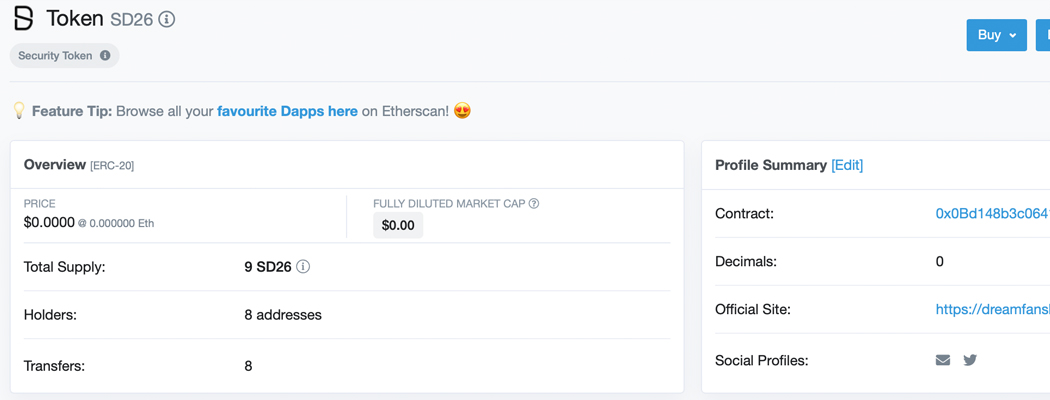
NBA player Spencer Dinwiddie has finished the token sale of his contract that is hosted on the Ethereum blockchain. The sale of Dinwiddie’s tokenized contract raised $1.3 million which was only a tenth of what the project hoped to sell ($13.5 million).
Even though the Brooklyn Nets guard Spencer Dinwiddie put a lot of energy into getting his NBA contract tokenized, the basketball player only got 10% of what they hoped to raise.
Essentially, Dinwiddie’s NBA contract was tokenized by leveraging Dream Fan Shares (DFS), a system built on Ethereum that claims to “empower athletes, artists, and influencers to take control of their financial destiny by structuring debt securities.”
Regulatory filings show the team hoped to sell Spencer Dinwiddie’s contract for $13.5 million worth of 90 available tokenized contract shares. However, the token sale only sold eight token SD26 shares worth $150,000 which created the $1.3 million raise.

Dinwiddie is a fairly popular player and told the public he would tokenize his contract in 2019 but the NBA threatened to end his contract. The Brooklyn Nets point guard continued to forward the project and DFS invoked the token sale this year.
The 27-year old Dinwiddie is also well known for recently testing positive for Covid-19 and at the beginning of the year he changed his jersey number.
The NBA approved the player’s request to change his jersey number from 8 to 26 in order to honor the now deceased Kobe Bryant.
Despite the basketball player’s notoriety, Dinwiddie’s SD26 shares had an extremely lackluster sale compared to other initial coin offerings (ICO). Dinwiddie’s token sale pales in comparison to the $42 million the Avalanche team raised in 4.5 hours just a few days ago.
The DFS website notes that “[token] Investments on Dream Fan Shares are illiquid and loss of invested capital is possible.”
The startup has three types of offerings and Dinwiddie’s SD26 represents the “athlete” type of shares. DFS has other tokens coming soon the website highlights which includes the “artist” and the “influencer.”
“Conceptualized by professional athlete Spencer Dinwiddie in coordination, with some of the world’s leading blockchain advisors and firms, DFS leverages highly secure contracts and the potential for performance-based bonuses and other contingent bonuses to structure debt securities,” the DFS website notes.
What do you think about athletes, artists, and influencers tokenizing themselves like the NBA point guard Spencer Dinwiddie? Let us know what you think about this subject in the comments below.
The post NBA Point Guard Spencer Dinwiddie’s Tokenized Contract Raises $1.3 Million appeared first on Bitcoin News.
via Jamie Redman
0 comments:
Post a Comment